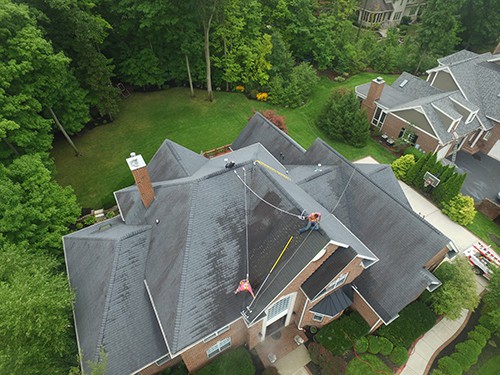Why is moss so bad for your roof.
Is green fuzzy moss bad for roof shingle.
This lack of drainage not only helps the moss grow and thrive but also may damage your roof because it increases the risk of water getting under the shingles.
If you ignore it overtime moss will grow beneath your shingles and lead to more severe damage.
This causes the roof to start degrading.
Just brushing or raking off moss won t prevent future moss growth and if roof cleaning is not done with care you risk damaging the shingles and reducing the life of the roof.
The resulting constant exposure to water can degrade shingles.
When it rains moss will soak up water and retain it creating consistently wet conditions on your roof.
When it gets wet it expands.
In some cases moss can cause serious damage.
This is what causes shingles to come loose or fall off as moss grows.
Moss thrives in damp moist areas including roofs that are north facing or shaded by trees.
The moss will absorb the damp environment s moisture and establish roots on the roof.
The roots then can lift up the shingles on the roof.
Moss is like a sponge.
The third most common type of growth on a roof is algae.
Moss isn t just attracted to moisture.
A more common type of growth on roofs is of course moss.
Moss growth will also interfere with proper drainage of water off the roof as water needs to trickle through or around the moss instead of running straight down to the gutters.
What are signs of moss damage on my roof.
These are probably not good things for your composition shingles.
If your roof has been moss covered for a long period of time don t attempt to remove it.
If you see shingles that look like they re expanding or starting to peel off that s another sign of possible moss growth too.
It helps keep your roof wet by storing moisture and preventing proper drainage.
A simple mixture of bleach and water will kill the moss causing it to dry up release from your roof and blow off in the wind.
Moss is darker green much thicker holds more water and also grips into the surface of the shingles.
The constant moisture can result in mold and bacteria growth.
Be on the lookout for green fuzzy clumps appearing on your shingles or growing up between the shingles.
For its size and mass it can hold a lot of moisture.

